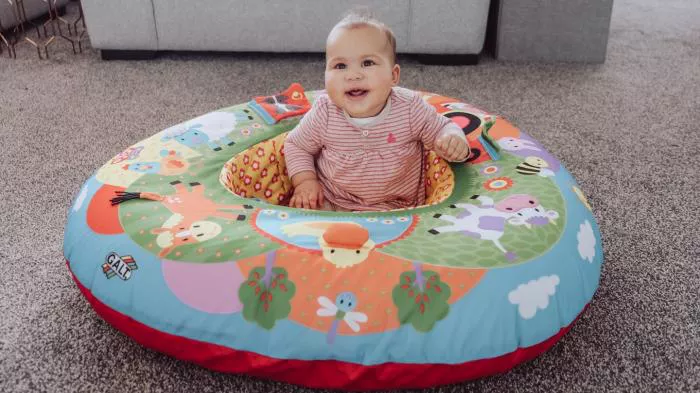JOLIET, Ill. — After months of uncertainty and stress in the neonatal intensive care unit (NICU), Karen Heath eagerly anticipated taking her triplet sons home. Born severely premature at just 25 weeks, each weighing only slightly more than a pound, the boys’ survival was initially uncertain. Doctors warned Heath that their chances were slim, but the infants defied the odds and survived.
However, for three months, Heath could not hold her babies. She had to settle for photos, videos, and blown kisses. The long-awaited discharge in the summer of 2019 was both joyful and rushed. An hour before release, Heath received a quick lesson from a physical therapist on how to help the babies build strength through gentle leg stretches. A nurse showed her how to operate the oxygen tanks the babies would need for the next few months. Heath packed the essentials—diapers, pacifiers, blood pressure cuffs, and hospital bands.
What Heath did not receive, however, was guidance on a crucial aspect of her children’s care: their eligibility for early intervention services. These services, which include speech, physical, and occupational therapies, are designed to support children’s development. Heath believes this information should have been provided long before the boys were discharged.
“This conversation should have happened way before they were released,” said Heath, a Joliet resident. She chose not to name the hospital where her children still receive care.
Despite significant medical advancements in the care of premature babies, especially those born before 28 weeks, challenges remain in ensuring they receive necessary therapies after they leave the NICU. In the 1960s, just 5% of premature infants with respiratory distress survived. Today, that number has improved to nearly 90%. But nationwide, including in Chicago, many parents of premature infants face barriers in accessing early intervention services that can prevent future developmental delays and reduce the need for special education.
Alison Liddle, a physical therapist in Chicago, is part of a team that researched early intervention access in the city. Their study found that while there is substantial knowledge about early brain development, the system for delivering these services remains difficult for parents to navigate. “Support systems have to catch up,” said Liddle. “We have a critical window to help families.”
Federal law mandates that children with developmental delays, including those born with a high likelihood of delay, can receive early intervention services from birth to age 3. However, states have the authority to design their own programs, set funding levels, and determine eligibility criteria. Babies born prematurely or with low birth weight automatically qualify, but national statistics reveal that far fewer children receive these services than should. Only 1% of infants under the age of 1 benefit from early intervention, despite an estimated 13% of infants likely qualifying.
Dr. Michael Msall, a neurodevelopmental pediatrician, compared the situation to a scenario where individuals are told at 65 that they are eligible for Social Security, only to find that they are denied benefits a year later. “We’d have riots in the streets,” he said.
The consequences for premature infants can be severe. Even a few months of early therapy can significantly improve a child’s chances of avoiding complications and developmental challenges later in life. However, advocates and physicians point to overstretched hospital systems and a lack of communication between hospitals and families as significant barriers to accessing care. “They really put the onus of helping your child get better outcomes on you,” said Jaclyn Vasquez, an early childhood consultant whose own children have spent time in the NICU.
Hospitals have varying procedures for informing families about early intervention, often at a time when parents are overwhelmed. Dr. Raye-Ann deRegnier, lead physician on a related study, explained that the responsibility of educating families usually falls to physical therapists. But communication issues persist. “The initial connection with families is tricky,” she said. “The families tend to be very busy when they take the baby home.”
At Chicago’s Lurie Children’s Hospital and Prentice Women’s Hospital, therapists are primarily responsible for discussing early intervention, but not all hospitals have such clear procedures in place. Even when therapists provide this information, miscommunication can still occur. For example, deRegnier recently spoke with a mother about early intervention, only to later learn that the mother had never been informed about the program by the physical therapist.
In Illinois, three years ago, the state’s Legislative Black Caucus recommended creating demonstration projects at NICUs to improve early intervention access, but without funding, this has not come to fruition. Meanwhile, a pilot study led by deRegnier and a coalition of therapists and hospital physicians revealed that only 13% of 60 Medicaid-eligible families with infants who qualified for early intervention were receiving those services within three to four months of discharge. The study found that bureaucracy and poor communication were the main reasons for the delay.
“When you make the system so difficult to navigate, families give up,” Liddle said. “There were many families just waiting for services they really need.”
Related topics:


